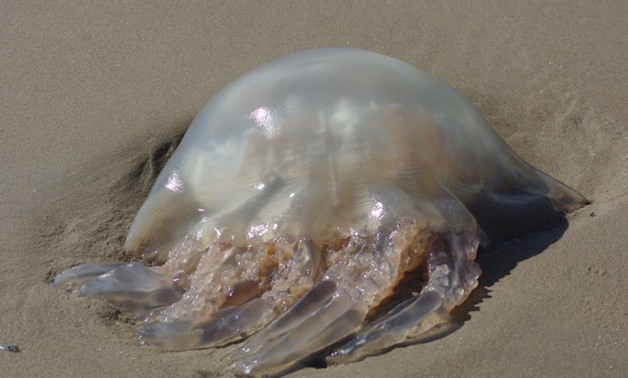
A jellyfish on the Mediterranean shore – Photo by Phil Champion
CAIRO – 2 July 2017: Egypt's Ministry of Environment refuted claims that the new Suez Canal contributed to the upsurge of jellyfish on the shores of the Mediterranean Sea.
The ministry pointed out that political aims behind such false reports, affirming the spread of jellyfish in all seas and oceans since the late 1970s.
Some claimed that the recent expansion of the Suez Canal could have contributed in changing the ecosystem of the Mediterranean and Indian Oceans.
A report published by The Guardian in 2014 said that the new Suez Canal would allegedly allow species from the Red Sea to invade the Mediterranean.
“Once only found in tropical waters, the nomad jellyfish invaded the Mediterranean via the Suez in the 1970s. Now its vast swarms, which can measure tens of miles in width, frequently make commercial fishing impossible and have sometimes closed tourist beaches lining the Mediterranean for days at a time,” the report said.
In an official response, the environment ministry said the number of jellyfish increases due to the abundance of food and the mating season coinciding with the summer and spring.
It added that the climate changes and pollution of the seas led to the decline of natural predators of the jellyfish, such as sea turtles, which in recent years have declined significantly in the Mediterranean.
The shores of the North Coast and the Mediterranean cities of Alexandria and Port Said have been witnessing huge amounts of jellyfish during this summer more than in the past, spoiling the summer vacation of Egyptians in these areas.
Comments
Leave a Comment